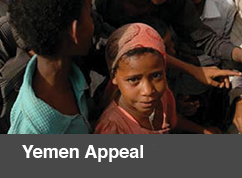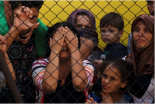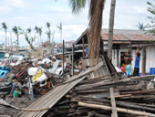It is reported on the authority of Imām al-Ṣādiq (as):
“Indeed, one of the signs of the completion of fasting (the month of Ramadan) is to pay the zakat i.e. fitrah; just as sending blessings upon the Prophet (saw) in tashahhud is one of the signs of the completion of salat.
Indeed, whosoever fasts but does not pay Zakat al-Fitrah, the fasting is not accepted when it is abandoned intentionally, and likewise, salat is not accepted if one abandons blessings upon the Prophet (saw), whereas Allah (swt) has mentioned zakat before the salat”.
Allah (swt) says: Felicitous is one who purifies oneself and celebrates the name of the Lord and prays”. (Qur’an 87:14-15)
When should it be paid?
Giving Zakat al-Fitrah becomes Wajib (obligatory) at sunset on the eve of Eid al-Fitr. However, sending Zakat al-Fitrah earlier enables it to reach the needy on time, thus you can send it as a temporary loan to the needy and then change your intention from loan to Zakat al-Fitrah on the eve of Eid al-Fitr.
According to ruling number 1181 of Minhaj al-saliheen of His Eminence al-Sayyid al-Sistani, “It is permissible to pay zakat al-Fitrah in the month of Ramadan, although the recommended precaution is that it should be paid as a loan and then considered as Zakat al-Fitrah when the time arrives.”
What should be paid?
Zakat al-Fitrah for a person is given on the weight of 3 kilogrammes (one sa`a) of the staple food of the region where that person lives such as wheat, rice, maize etc. The monetary value of these items would also suffice. If those items are not the staple food of your region then precaution is to calculate from whatever is considered as staple food.
This can calculated as an estimated payable amount of £5 / $7 USD for each person.
Facts about Zakat al-Fitrah
An obligatory precaution should be to provide your Zakat al-Fitrah to a deserving needy Shia in your own locality with priority given to relatives or neighbours then to religious and learned potential recipients.
It is obligatory for a host to pay Zakat al-Fitrah for his invited guest who arrives at his house before sunset or for the host to pay for a non invited guest who could be classed as a dependant.
Children studying abroad are considered as dependants if they rely on the financial support of their parents.
Obligatory precaution is that the Zakat al-Fitrah should be distributed to someone who is Shia, poor and does not openly commit sins or where the payment would not be used for sinful purposes.
Zakat al-Fitrah from a non-Sayyid cannot be given to a needy Sayyid; the reverse is permissible.
As an act of Ibada, It should be given with the intention of submission to and seeking nearness to Allah (swt).
More information
Please note that the above rules are only an overview of the rulings on Zakat al-Fitrah according to His Eminence al-Sayyid al-Sistani (may Allah protect him). For more information, please see Islamic Laws.
For specific questions about your situation, please visit Ask an Alim, where you can submit a question and get a response from an Alim or view similar questions which may apply to you.
















